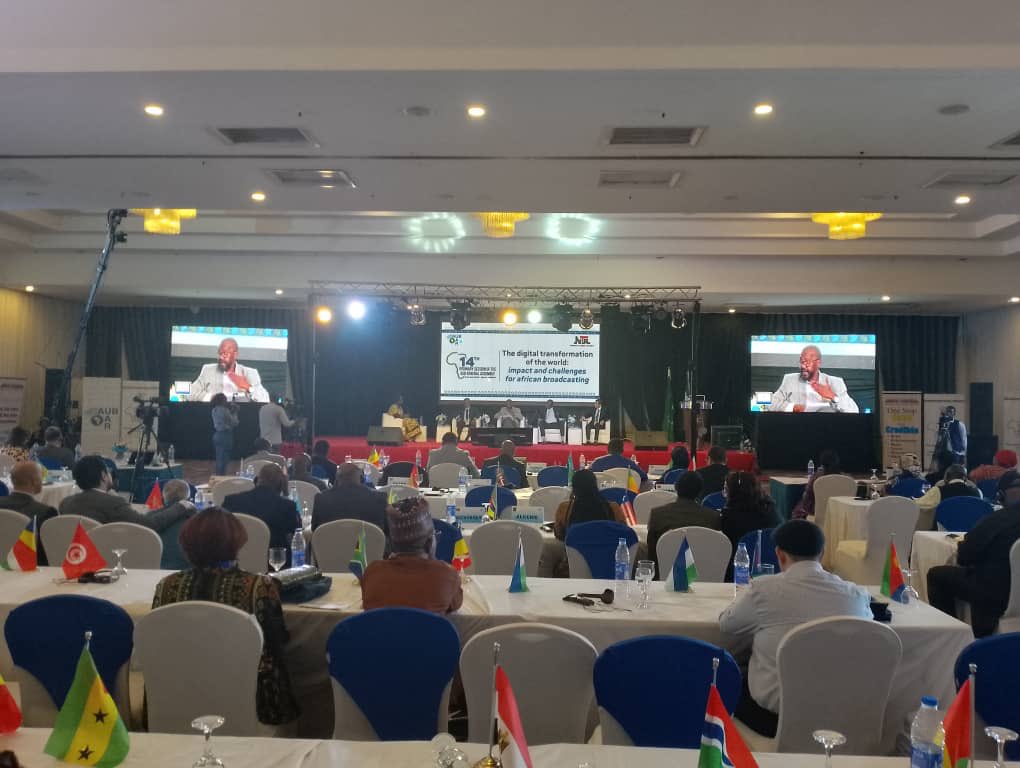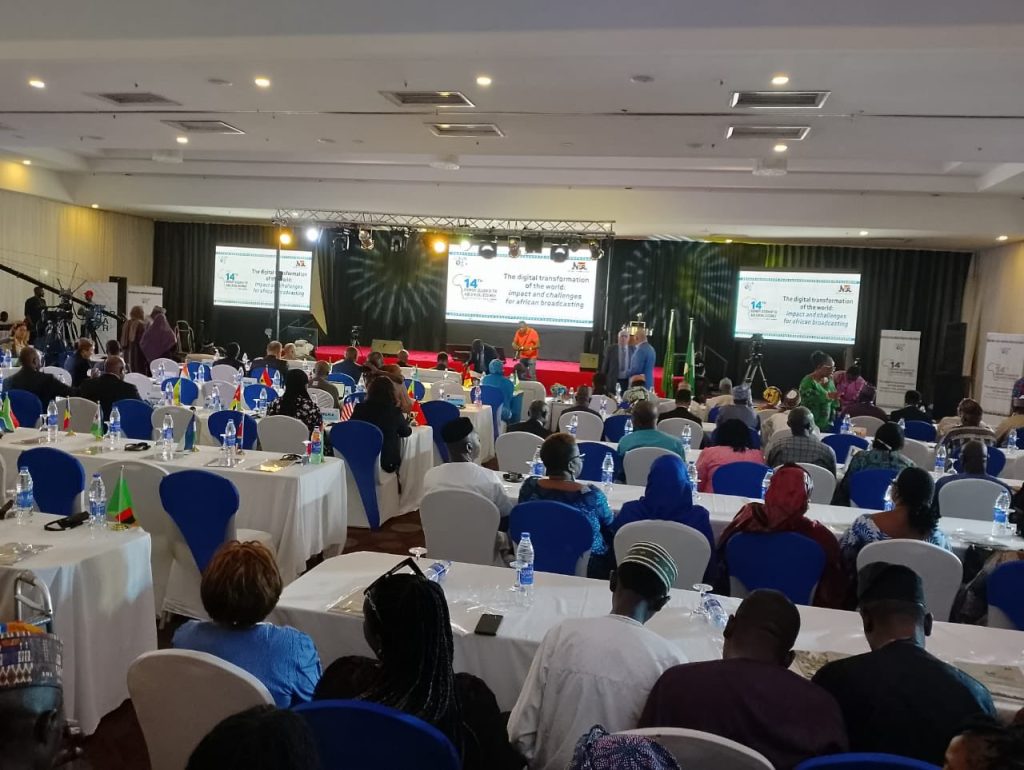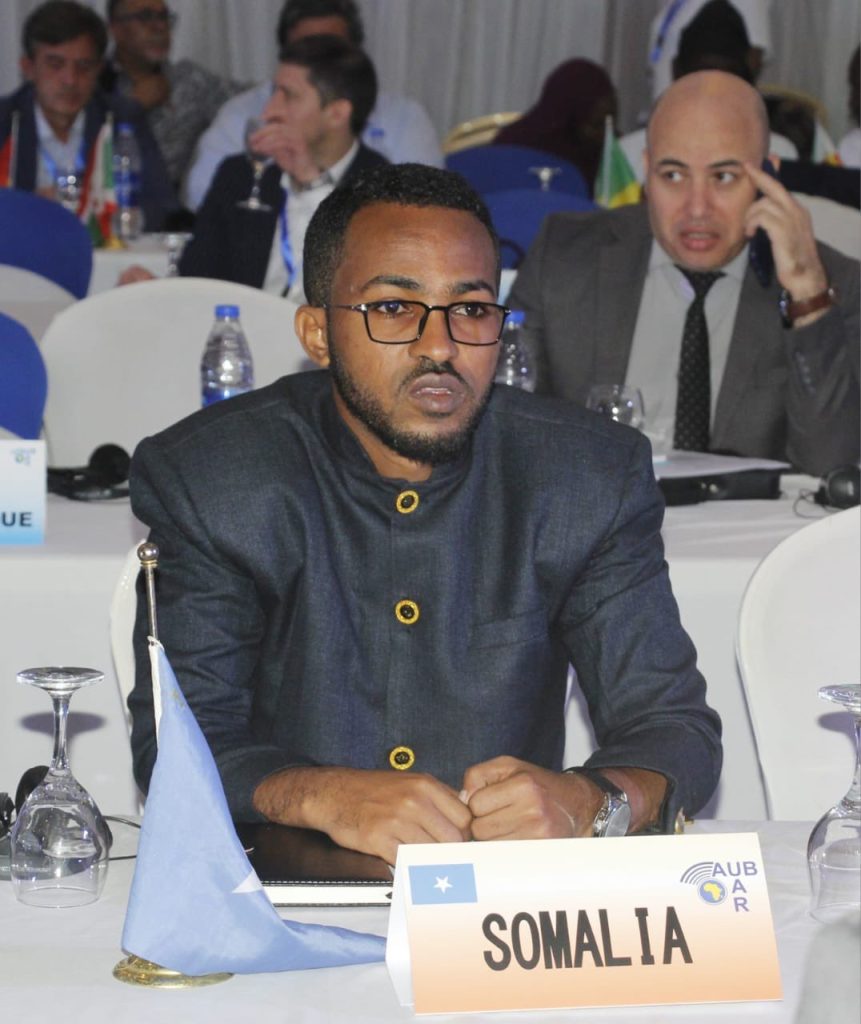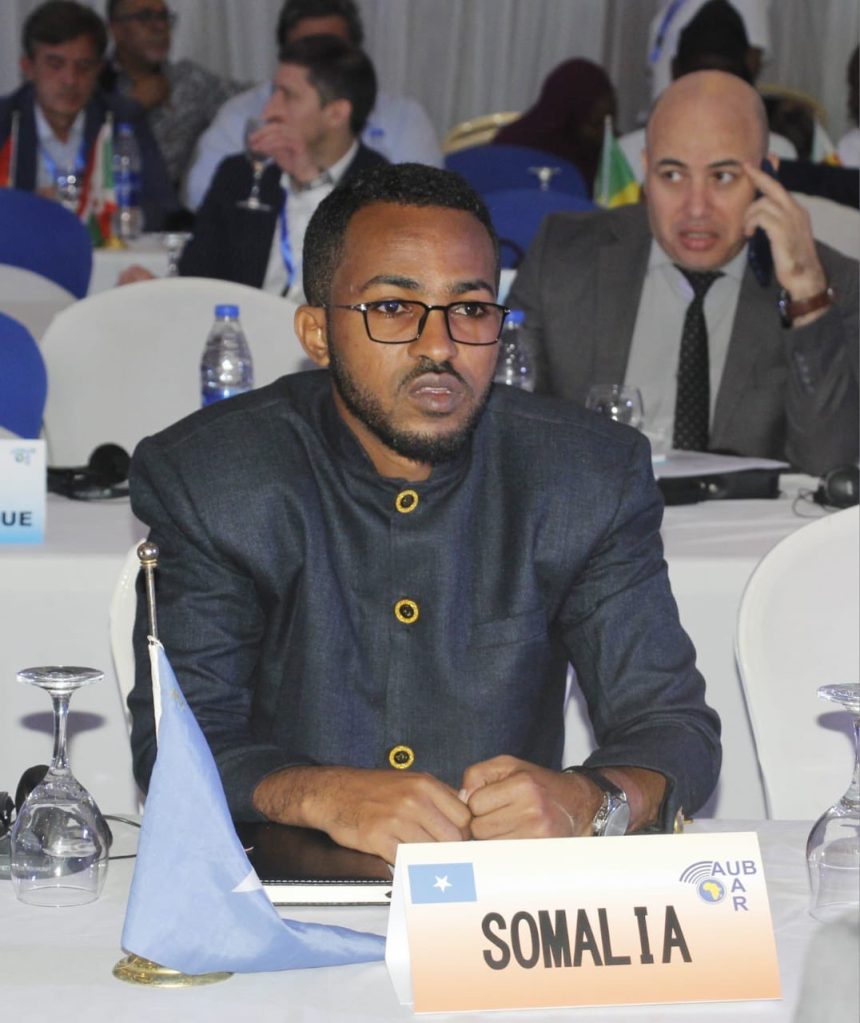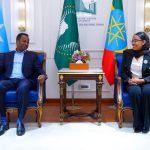Abuja, (SONNA) – The high-level gathering, themed “The Digital Transformation of the World: Impact and Challenges for African Broadcasting,” brought together policymakers, national media leaders, regulators, and communication strategists from across Africa and beyond. The conference aimed to accelerate the continent’s efforts to bridge the digital divide and strengthen public broadcasting in the face of evolving technologies.
Abdishakur Ali Ahmed, Director of New Media and Government Communication Coordinator at the Ministry of Information, Culture and Tourism of the Federal Republic of Somalia, represented Somalia at the 14th Annual Conference of the African Union of Broadcasters (AUB), held in Abuja, Nigeria. He participated in strategic sessions focused on the integration of digital platforms into public service broadcasting, emphasizing Somalia’s own initiatives in this domain. Speaking on behalf of the Ministry, he highlighted the growing role of digital and social media platforms in national communication and governance:
“In Somalia, we are working to modernize government messaging and public engagement through digital tools,” he said. “Our participation in this conference underscores our commitment to collaborative progress, regional alignment, and inclusive digital development.”
As the Director of New Media and Government Communication Coordinator, Mr. Abdishakur leads digital strategy and public communication initiatives across Somalia’s federal institutions. His portfolio includes oversight of government social media platforms, media coordination among ministries, and efforts to strengthen public access to information.
Keynote speakers at the AUB conference included Nigeria’s Minister of Information, H.E. Alhaji Lai Mohammed, who urged African media leaders to counter digital exclusion and misinformation, and Mr. Arthur Asiimwe, President of AUB, who called for urgent action to keep pace with digital innovation. Representatives from the Asia‑Pacific Broadcasting Union (ABU) also joined the discussion, fostering intercontinental collaboration on media policy, infrastructure investment, and professional training.
Cancer in Africa: The Media’s Crucial Role
Africa faces a rising cancer burden that poses significant social and economic challenges:
- The continent recorded approximately 1.1 million new cancer cases and over 700,000 deaths in 2020; these figures are projected to nearly double by 2040 due to population growth and aging.
- Most patients—an estimated 80%—are diagnosed at advanced stages, largely due to limited awareness and lack of early detection programmes.
- Access to treatment is severely constrained: many countries lack essential cancer medicines, diagnostic tools, and trained healthcare personnel, leading to poor survival rates.
- Urban‑rural disparities compound the crisis, with people in remote areas facing even greater barriers to care.
The media—particularly public broadcasters and digital platforms—have a critical role to play:
- Awareness & Education: Radio, TV, and online campaigns can inform communities about cancer prevention (such as avoiding tobacco use and improving diet), symptoms, and the importance of screening.
- Myth‑busting: Public information campaigns can dispel misconceptions—such as cancer being incurable or contagious—which often delay care-seeking.
- Promoting Screening & Vaccination: Targeted media initiatives, especially in partnership with health authorities, can boost participation in cervical and breast cancer screening and HPV vaccination programmes.
- Advocacy & Policy Engagement: Media coverage can amplify patient stories, spur public demand for better cancer services, and pressure governments to fund cancer control strategies.
- Reaching Rural Communities: In regions with low literacy and limited healthcare access, localized radio broadcasts in regional languages offer an effective channel for health messaging.
- Digital Outreach: As Somalia and other African countries expand internet and smartphone access, social media and mobile platforms provide powerful tools for health communication and behaviour change.
Integrating cancer awareness messaging into the digital transformation agenda exemplifies how media can advance human development beyond the digital realm. Somalia’s participation in the AUB conference underscores a broader vision: to build public broadcasting systems that not only modernize governance and communication but also save lives and foster healthier societies.
